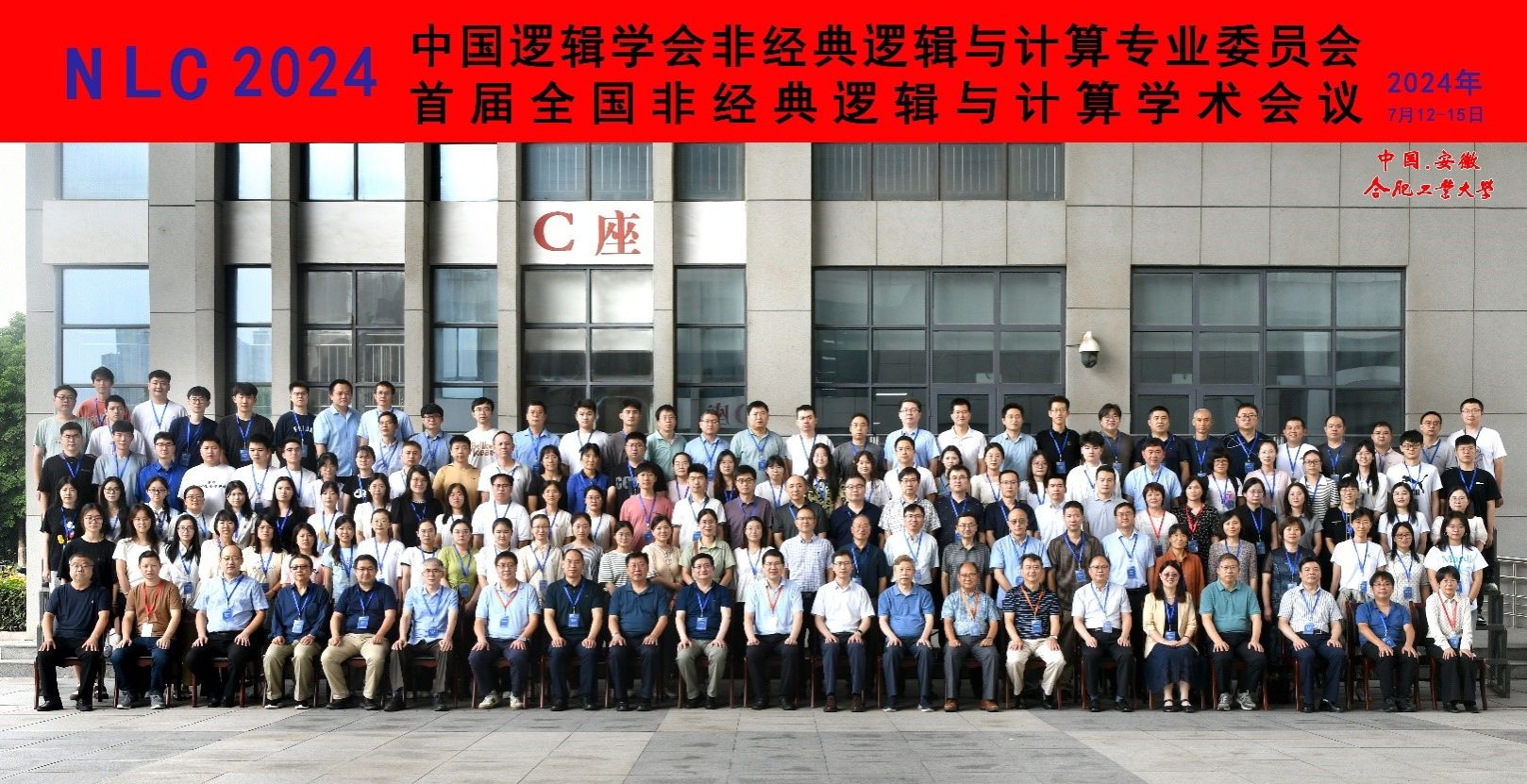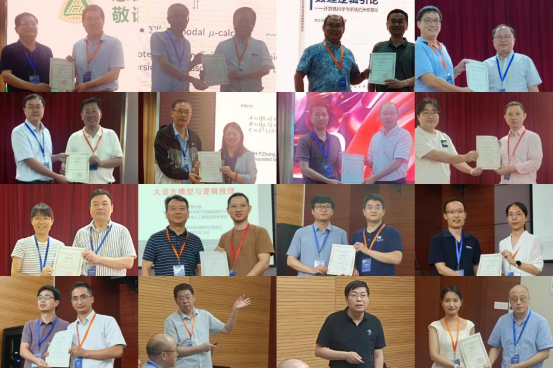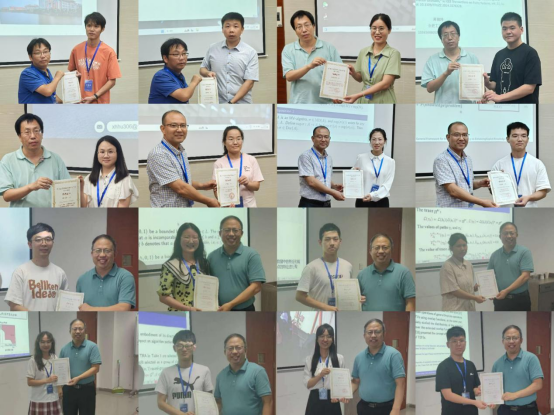To exchange cutting-edge achievements in non-classical logic and computing, discuss development trends, promote the application of results, and strengthen interdisciplinary integration, the first National Conference on Non-Classical Logic and Computing was successfully held at our university from July 12 to 15, 2024. This conference was organized by the Chinese Logic Society's Non-Classical Logic and Computing Committee of the Chinese Logic Society, hosted by Hefei University of Technology and the Anhui Provincial Artificial Intelligence Society, and co-hosted by Shaanxi University of Technology. The conference chairpersons were Professor Hong Richang from Hefei University of Technology and Professor Yang Yichuan from Beihang University. 169 scholars from 63 different universities and research institutes were invited to attend the conference.

On the morning of July 13, the conference opening ceremony was presided over by Professor Zhou Hongjun, Vice Director and Secretary-General of the Chinese Logic Society's Non-Classical Logic and Computing Committee. Hu Xiaoxuan, Deputy Secretary of the Party Committee of Hefei University of Technology, delivered a welcoming speech. He warmly welcomed the experts and scholars to the academic event at Hefei University of Technology academic event and wished the conference great success. Professor Hong Long from Nanjing University of Posts and Telecommunications spoke on behalf of the Chinese Logic Society. Professor Chen Yixiang, Director of the Artificial Intelligence Logic Committee of the Chinese Association for Artificial Intelligence, gave a speech on behalf of the brother committees. Finally, Yang Yichuan, Professor and Chair of the Non-Classical Logic and Computing Committee of the Chinese Logic Society, delivered a keynote speech, pointing out that the era of artificial intelligence offers opportunities for logic and computing. He hoped this conference would serve as an opportunity for scholars to actively exchange knowledge, strengthen unity and mutual assistance, and seek better development together.
On the mornings of July 13 and 14, Professor Gao Xinbo from Chongqing University of Posts and Telecommunications, Professor Liu Zhiming from Southwest University, Professor Kazuyuki Tanaka from Beijing Yanqi Lake Institute of Applied Mathematics, Associate Professor Wu Guohua from Nanyang Technological University in Singapore, Professor Li Qingguo from Hunan University, Professor Liu Huawen from Shandong University, Professor Zhou Hongjun from Shaanxi Normal University, Professor Tang Yiming from Hefei University of Technology, and Professor Zhang Xiaohong from Shaanxi University of Science & Technology successively presented their reports at the conference. They shared their latest research progress in fields such as trustworthy visual intelligence, modal logic, domain theory, and fuzzy reasoning. The discussion atmosphere was lively, with scholars actively participating and exchanging insights and opinions.
In the afternoon of July 13, the conference continued with four parallel sessions. In the intelligent reasoning session, Professor Chen Yixiang from East China Normal University, Professor Liu Xinwang from the National University of Defense Technology, Professor Su Yansen from Anhui University, and Professor Jie Biao from Anhui Normal University successively delivered invited talks. They shared their latest research findings and explored the development trends of intelligent reasoning technology and its application prospects in various fields, prompting deep reflection among the attending scholars. In the trustworthy artificial intelligence session, Professor Yang Fei from Anhui Medical University, Professor Gu Dongxiao from Hefei University of Technology, and Associate Professor Li Yuling from Anhui Medical University delivered invited talks. They discussed the importance of trustworthy artificial intelligence technology in medical applications, focusing on its crucial role in improving the quality of medical services and protecting patient privacy.

Additionally, the conference featured two sessions dedicated to student presentations, allowing participating graduate students to share their latest research findings. Students from across the country presented their work in detail. Thet participated actively, engaging in in-depth discussions on cutting-edge issues and innovative achievements within their respective fields of study. These sessions received unanimous praise from attending experts, faculty, and students.

Following the conclusion of the presentations, Professor TangFollowing the conclusion of the presentations, Professor Tang of the Organizing Committee and Chair of the Organizing Committee, and Standing Committee Member of the Non-Classical Logic and Computing Committee of the Chinese Logic Society presided over the closing ceremony and presented the awards for outstanding student reports.
 TOP
TOP